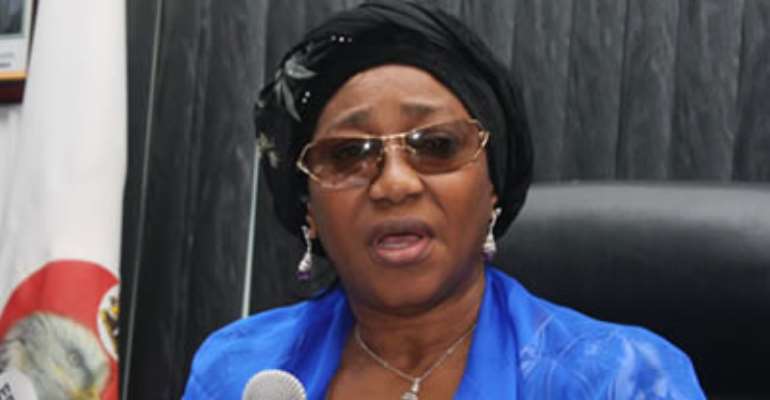Farida's Chairmanship Of EFCC Threatened As Reps Seek Senior Justice As Chairman

ABUJA, October 26, (THEWILL) - The House of Representatives today passed for second reading, an amendment Bill to the Economic and Financial Crimes Commission (EFCC) Act, with a view to making it compulsory for the Commission’s Chairman to be a serving or retired Justice of the Supreme Court or the Court of Appeal.
The Bill sponsored by Chairman of the Committee on Gas Resources, Hon. Bassey Ewa (PDP, Cross River) also sought to make it compulsory for all petitioners to the commission to file such petitions under oath, as well as create special investigative unit within the EFCC, to be headed by a retired Assistant Inspector-General (AIG) of police.
While leading debate on the general principles of the Bill, Ewa expressed worries that no specific reference was made on the qualification of Chairman of the Commission in section two of the EFCC Act, adding that the changes were needed to reposition the commission that has increasingly turned to a political tool against perceived enemies of the state.
If the final approvals are made, Farida Waziri, a retired Assistant Inspector General of Police and current chairman of the EFCC may automatically fall short of the qualification to continue as head of the organisation.
“Let’s face it, the EFCC now has become a tool used for witch-hunting, and its mode of operation has been outside the law.
“That is because, they have allowed themselves to be used and the laws are not followed. A person that has worked so hard and earned a name in the highest courts will not allow him or herself to be used by anybody after retirement.”
Also supporting the bill, Hon. Uzor Azubuike (Abia) noted that “ordinarily, the law says a suspect is to be treated as innocent until proven guilty; but at the EFCC, it is otherwise. They are treated as guilty until proven innocent.”
Other members who spoke criticized the commission under Waziri, especially for continually reeling out hundreds of charges against suspects; but usually ending up without strong convictions.
The lawmaker further argued that accommodating anonymous petitions violated the Evidence Act, which requires a petitioner to be identified and placed as a witness.
